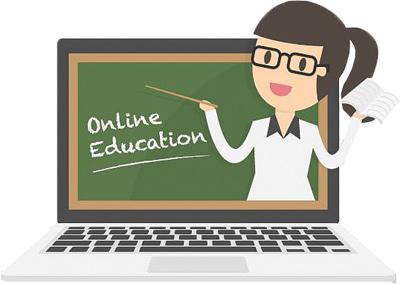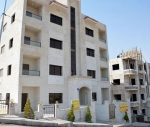You are here
Awaiting gov’t decision on modes of teaching, school owners envision best-case scenarios
By Rana Husseini - Aug 24,2020 - Last updated at Aug 24,2020
AMMAN — As the new 2020/2021 academic year approaches, school owners prepared different scenarios until they learn of the government’s decision that will determine whether students will attend schools or resort to distance learning.
The government announced recently that the school year will commence on September 1, but made no decision on modes of teaching, whether in-class learning will be allowed with strict health conditions or continue online classes.
In March, following the COVID-19 outbreak in the Kingdom, the government issued defence orders ordering a nationwide shutdown and education establishments were instructed to offer online classes.
The coronavirus was contained for several months. However, the recent surge in the number of virus cases has prompted education and health officials to reassess the situation related to the reopening of schools.
Senator and school principal Haifa Hajjar-Najjar said the administration examined several scenarios to deal with the current situation.
“We have prepared ourselves for different scenarios such as giving classes online or adopt the hybrid learning method under strict health rules,” Hajjar Najjar told The Jordan Times.
Hybrid learning, according to Hajjar-Najjar is a combination of traditional classroom experiences, and online courses whereby the students will attend classes every two days then one day at home then two days at school or the other way around.
Hajjar-Najjar added the school is trying to “make the best out of the situation regardless of what the government will end up deciding”.
“I believe this experience taught us a lot of things, including to always be prepared for more than one scenario. It is also an opportunity to raise the student’s awareness regarding the importance of hygiene and cleanliness, and on ways to protect themselves from viruses and diseases,” Hajjar-Najjar said.
A director at a private school also told The Jordan Times that they have been working on “three scenarios ever since the students were forced to stay at home almost six months ago”.
“We are preparing for different scenarios because we have known since the COVID-19 outbreak that we need to examine all options,” the school director, who preferred not to be identified, said.
She added that one option is online education and another is to open the school and increase the number of classes and teachers.
The third plan, she added, is to have a few days at home and a few days at the school under strict health conditions.
President of the Private Schools Owners' Association Monther Al Sourani said that “distance learning is costly to both the schools and the families”.
"We are hopeful that the government will take the right step and ensure that learning would be in classrooms and not online because this will work for the benefit of everyone," Sourani told The Jordan Times.
But Sourani was quick to add that "if the government issues different instructions then we will surely abide by it, regardless of the cost".
Sourani had told The Jordan Times in a recent interview that the fear of going back to remote education as a result of the COVID-19 crisis has led parents to seek public schools instead of private schools.
Sourani said that private schools have been committed to defence orders and have a lot of operational fees and salaries to pay. However, many are experiencing enrolment cancellations by the hundreds.
Many parents are cancelling the enrolment of their children due to the financial repercussions they faced under the crisis, Sourani said.
Sourani speculated that if remote education is back on the table in the upcoming semester, some private schools will shut down due to their inability to meet their financial dues with very few enrolled students.
According to Defence Order No.6, hard-hit businesses are allowed to deduct certain percentages from the salaries of their employees among other stipulations aimed at protecting both the employer and the employees.
Related Articles
AMMAN — Parents have been demanding that private schools reduce their fees for the second semester due to the coronavirus crisis, which has
Since the coronavirus outbreak in March this year, online distance learning has become the cornerstone of education in Jordan.
AMMAN — The government on Wednesday announced that the 2020/2021 academic year for all educational institutes in the Kingdom will commence o

















